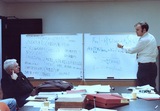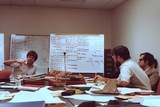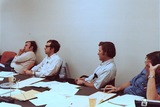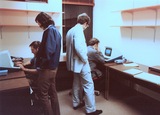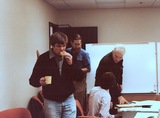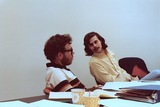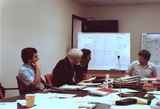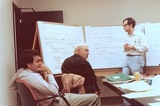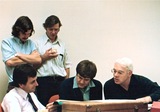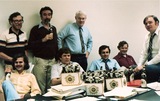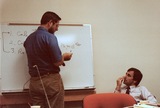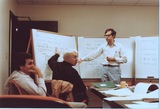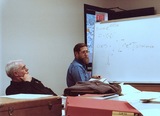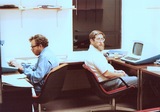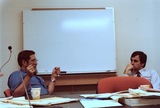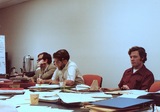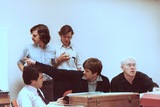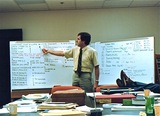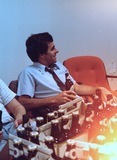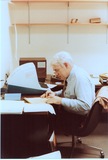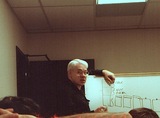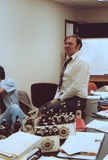NRCC Workshop: Cooperative Computer Code Generation for Crystallography
Lawrence Berkeley Laboratory, CA, USA
10 November - 17 November 1979
The US National Resource for Computation in Chemistry sponsored a number of workshops intended to provide facilities and personnel dedicated to advancing chemistry and related sciences through widespread, intensive use of high-speed computational equipment. This November 1979 Workshop was convened to create a portable program for multiple isomorphous replacement. From the 1979 Annual report for NRCC:
COOPERATIVE COMPUTER CODE GENERATION FOR CRYSTALLOGRAPHY
November 10-17 at the NRCC, Lawrence Berkeley Laboratory
Organizers: Dr Steven Freer, University of California, San Diego; Dr Arthur Olson, NRCCAs a direct result of the workshop on software standards held in Salt Lake City in late July, the NRCC initiated a pilot project to develop portable crystallographic software. The crystallographers present at the Utah conference recommended that the NRCC sponsor the development of a code that has a standard data format and is portable from computer to computer. In order to demonstrate the feasibility of the idea, the NRCC held this workshop at which ten invited scientists came together in order to develop and code a multiple isomorphous replacement (MIR) program for distribution among crystallographers. The MIR code, which is used for the phasing of macromolecular structures, was developed on the NRCC's VAX 11/780 and will be tested on other computers to insure its portability. The success of such a project could signal the beginning of a new era in program exchange among computational chemists.
The NRCC is a catalyst for successful workshops because of the involvement of the Policy Board, Program Committee, and in-house staff. Both the Policy Board and the Program Committee make recommendations that guide the selection of workshop topics, leaders, and speakers. The in-house staff bring their expertise to bear on appropriate aspects of workshop planning and implementation. They work with conference coordinators both at LBL and remote sites, and assist in the development of workshop proceedings as technical advisors and as liaison between the NRCC and the LBL Technical Information Department, which publishes the proceedings. The NRCC also has access to the expertise of the LBL support divisions which made possible the remote access computing capability that had such a major role in the success of the novel instructional workshop on molecular structure determination. The NRCC's workshop program is not duplicated by any other organization or agency.


![[Crystallography Around The World] [Worldlogo]](https://www.iucr.org/__data/assets/image/0005/149540/world_bw.png)

